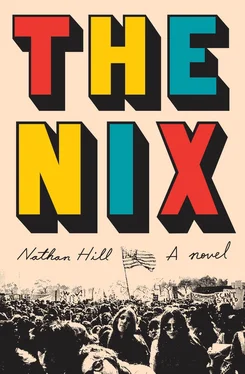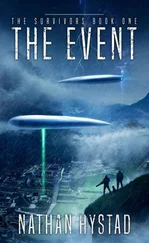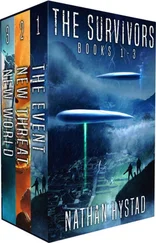“Not exactly.”
“I know I’m asking you to process your feelings quickly. But we’re on a schedule.”
“It didn’t seem like she wanted to talk. But I’m working on it. I’m doing some research. It might take some time.”
“Some time. Right. You remember that big oil spill in the Gulf last year?”
“I do.”
“People cared about that for, on average, thirty-six days. They’ve done studies on this.”
“What do you mean ‘cared’?”
“For the first month, people expressed mostly indignation and retarded anger. After about five weeks, the average response was ‘Oh, right, I forgot about that.’ ”
“So you’re suggesting we have a window here.”
“A very small and shrinking window. That was the worst environmental disaster in North America ever. Compared to that, who cares about some lady who threw rocks at a guy most people acknowledge is sort of a douche bag?”
“But what do I do? What’s my alternative?”
“Bankruptcy. Jakarta. I already explained this.”
“I’ll work fast. I’m actually in Iowa right now, collecting information.”
“Iowa. I have no concept of what that looks like.”
“Think abandoned factories. Farms up for auction. Cornfields with little signs advertising Monsanto. I’m driving past one right now.”
“Delightful.”
“Barges on the river. Hog lots. Hy-Vee.”
“I’m sort of not listening to you anymore.”
“I’m interviewing my grandfather today. Maybe he can tell me what really happened to my mom.”
“How can I say this delicately? We’re not all that interested in ‘what really happened’ to your mom. We’re much more interested in getting all those people who go temporarily insane before a presidential election to open up their wallets.”
“I’m at the nursing home now. Gotta go.”
The place was an anonymous-looking structure that, from the outside, appeared to be an apartment building — plastic siding, curtains over the windows, the ambiguous name: Willow Glen. Samuel walked through the front doors and smelled the aggressive, claustrophobic odor of institutionalized medicine: bleach, soap, carpet cleaner, the underlying omnipresent sweet tang of urine. At the front desk, there was a form for all guests to sign and state the reason for their visit. Next to his name, Samuel wrote “Research.” His plan was to talk to his grandfather until he got some answers. Hopefully his grandfather would, indeed, talk. Frank Andresen had always been such a quiet man. He had an inward, disinterested manner, spoke with a perplexing accent, often smelled of gasoline, and seemed a little out of reach. Everyone knew he’d emigrated from Norway, but he never said why. “To find a better life” was as much as he’d reveal. Really the only specific thing he’d ever say about his life back there was that their family farm was a beautiful thing to behold: a big salmon-red house with a view of the water, there in the northernmost city in the world. It was the only time he seemed happy, talking about that house.
A nurse led Samuel to a table in the empty cafeteria. She warned him that when Frank spoke, he rarely made much sense.
“The medicine he’s on for the Parkinson’s causes a bit of confusion,” she said. “And the drugs for the depression cause drowsiness, lethargy. Between that and the dementia, you probably won’t get much.”
“He’s depressed?” Samuel said.
The nurse frowned and held out her arms. “Look around.”
Samuel sat, took his phone out to record the conversation and saw he had several new e-mails — from the dean, and the director of Student Affairs, the director of University Relations, also the Office of Adaptive Services, the Office of Inclusivity, Student Health, Academic Counseling, Student Psychological Services, the provost, the ombudsperson, all of them with the same subject line: Urgent Student Matter.
Samuel sank into his chair. Swiped the phone to make the e-mails disappear.
When the nurse wheeled his grandfather to the table, Samuel’s first impression was that he was small. So much smaller than in Samuel’s memory. He was unshaven, a spotty beard showing black and white and red, mouth agape and white dots of spit on his lips. He was thin. He wore a thin bathrobe the green of pistachio pudding. His gray hair was tangled from sleeping, sticking up like grass. He was looking at Samuel and he was waiting.
“It’s good to see you again,” Samuel said. “Do you know who I am?”
FRANK’S OLDEST MEMORIES were the sharpest. He remembered the boat especially. Fishing off the back of the boat those months the arctic would allow it. This memory was clear and vivid still: the guys in the warm cabin eating and drinking because the work was done and the nets were in and it was midnight in the summer when the sun didn’t quite set but moved horizontally across the sky.
A red-orange twilight that lasted a whole month.
Everything was more dramatic in that light — the water, the waves, the distant rocky shore.
He was Fridtjof then, not Frank.
Still a teenager.
How he loved it, Norway, the arctic, the water cold enough to stop your heart.
He fished at the end of the day for sport, not money. What he loved was the struggle. Because when you’re catching those boiling schools of blackfish in those great big nets, you don’t feel the struggle like you do when it’s just you and the fish connected by a thin white line.
Life was uncomplicated then.
Here is what he loved: the way it felt setting the hook with that snap of his wrist; the feeling of the fish plunging to the bottom, all power and muscle and mystery; resting the rod on his hip and pulling so hard it’d leave a bruise; how he couldn’t see the fish until it shimmered just below the surface; then that moment when it finally emerged.
The world had that quality now.
This was what life was like.
Like a fish pulled from wine-dark water.
Faces seemed to issue forth from nowhere. He opened his eyes and there was someone new. Right now, a young man, fake shitty grin, a bit of fear around his eyes. A face that wanted to be recognized.
Frank didn’t always recognize the faces but he recognized their need.
The young man was speaking, asking questions. Like the doctors did. There were always new ones coming and going. New doctors, new nurses.
Same flowcharts.
A flowchart for every bruise. A flowchart for every bed-wetting. If he seemed confused, there was a flowchart. Cognition tests, problem solving, safety awareness. They measured body mobility, balance, pain threshold, skin integrity, comprehension of single words, phrases, commands. They rated all this on scales of one to five. They asked him to roll, sit up, lie back down, go to the toilet.
They checked the toilet to see if he made it in the bowl.
They measured his swallowing. There was a whole flowchart for swallowing. On a scale of one to five, they rated his chewing, how he worked chewed food around in his mouth, how well his swallow reflex triggered, whether he drooled or spilled. They asked him questions to see if he was able to speak while eating. They checked for food pocketed in his cheek.
Stuck their fingers right in there and checked.
Made him feel hooked. Like he was the fish now. He was the one diving into darkness.
“It’s good to see you again,” said this young man in front of him. “Do you know who I am?”
He had a face that reminded Frank of something important.
It was like a screwed-up look, like what a poisonous secret does to your face, the pain that lives just below the skin and twists it.
Frank was getting worse at most things but better at some. And he was definitely better at this: reading people. He could never do this before. All his life, people were such a mystery. His wife, her family. Even Faye, his own daughter. But now? It was like something had been reshaped within him, like how a reindeer’s eyes change color: blue eyes in winter, gold in summer.
Читать дальше












